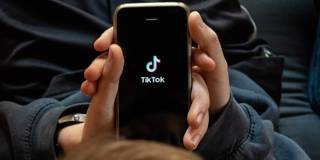US policymakers, in a rare show of bipartisanship, are attempting to ban TikTok, which they claim allows China to “surveil and influence the American public.” But the app is only a small part of a much larger problem: the lack of an affirmative model of data governance that protects privacy and civil liberties.
CAMBRIDGE – Last week, the United States House of Representatives passed the Protecting Americans from Foreign Adversary Controlled Applications Act. It is no secret that the bill takes aim at TikTok. The massively popular video-sharing platform is owned by Beijing-based ByteDance and thus subject to the laws of the People’s Republic of China, and potentially to the control of the Communist Party of China (CPC), despite assurances to the contrary from company executives.
If the Senate approves the bill, and US President Joe Biden signs it into law (as he has said he would), ByteDance would be forced to sell TikTok to a non-Chinese company within six months or be banned from US app stores. The reasoning, according to the legislation’s bipartisan sponsors, which include the chair and ranking member of the House Select Committee on the Chinese Communist Party, is that TikTok undermines democracy and threatens national security by allowing China to “surveil and influence the American public.”
To be sure, TikTok poses risks to American users. But the app is only one small part of a much larger problem: the lack of an affirmative model of data privacy that protects privacy and civil liberties. By targeting TikTok, US policymakers are merely boosting the company’s competitors while sapping momentum from the push for effective data and algorithmic transparency regulations.

CAMBRIDGE – Last week, the United States House of Representatives passed the Protecting Americans from Foreign Adversary Controlled Applications Act. It is no secret that the bill takes aim at TikTok. The massively popular video-sharing platform is owned by Beijing-based ByteDance and thus subject to the laws of the People’s Republic of China, and potentially to the control of the Communist Party of China (CPC), despite assurances to the contrary from company executives.
If the Senate approves the bill, and US President Joe Biden signs it into law (as he has said he would), ByteDance would be forced to sell TikTok to a non-Chinese company within six months or be banned from US app stores. The reasoning, according to the legislation’s bipartisan sponsors, which include the chair and ranking member of the House Select Committee on the Chinese Communist Party, is that TikTok undermines democracy and threatens national security by allowing China to “surveil and influence the American public.”
To be sure, TikTok poses risks to American users. But the app is only one small part of a much larger problem: the lack of an affirmative model of data privacy that protects privacy and civil liberties. By targeting TikTok, US policymakers are merely boosting the company’s competitors while sapping momentum from the push for effective data and algorithmic transparency regulations.